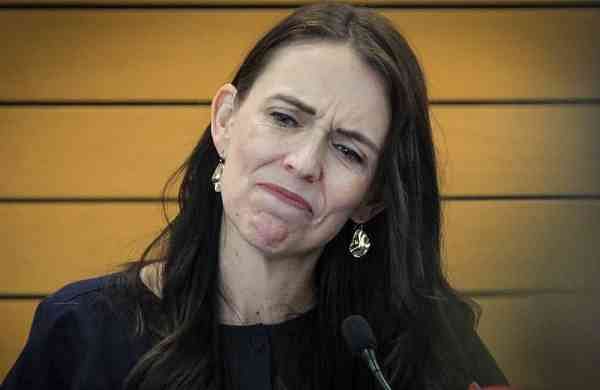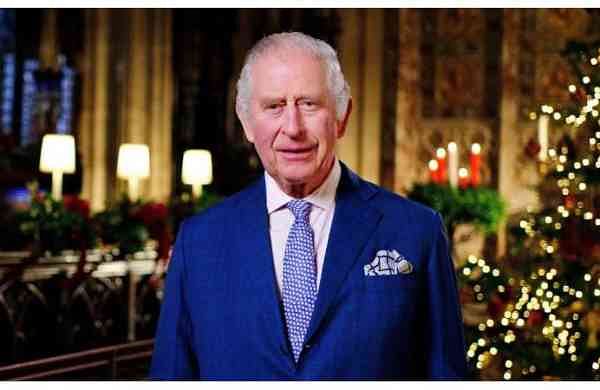[ad_1]
By Associated Press
WELLINGTON: New Zealand Prime Minister Jacinda Ardern, a global figurehead of progressive politics, shocked the country Thursday by announcing she would resign from office in a matter of weeks.
The 42-year-old — who steered the country through natural disasters, the Covid pandemic, and its worst-ever terror attack — said she no longer had “enough in the tank”.
“I am human. We give as much as we can for as long as we can and then it’s time. And for me, it’s time,” she said at a meeting of members of her Labour Party.
Ardern said she would step down no later than February 7, less than three years after winning a landslide election to secure her second term in office.
Since that 2020 peak of “Jacindamania”, Ardern’s government has struggled — its popularity hampered by soaring inflation, a looming recession and a resurgent conservative opposition.
“I believe that leading a country is the most privileged job anyone could ever have, but also one of the more challenging,” Ardern said.
“You cannot and should not do it unless you have a full tank, plus a bit in reserve for those unexpected challenges.”
She also announced that New Zealand’s next general elections would be held on October 14, and that she would remain a lawmaker until then.
It’s unclear who will take over as prime minister until the election. Deputy Prime Minister Grant Robertson announced he wouldn’t be contesting for the leadership of the Labour Party, throwing the competition open.
New Zealand Prime Minister Jacinda Ardern will not seek re-election and plans to step down from the role by February 7 @NewIndianXpress @TheMornStandard
— Yeshi Seli ਯੇਸ਼ੀ ਸੇਲੀ (@YeshiSeli) January 19, 2023
Ardern described her job as among the most privileged but challenging and said doing it required having a reserve to face the unexpected. She said she no longer had that reserve to serve another term.
She said her time in the office has been fulfilling but challenging. “But I am not leaving because it was hard. Had that been the case I probably would have departed two months into the job. I am leaving because with such a privileged role, comes responsibility, the responsibility to know when you are the right person to lead, and also, when you are not. I know what this job takes, and I know that I no longer have enough in the tank to do it justice. It is that simple,” she said.
Ardern had been facing tough election prospects. Her liberal Labour Party won reelection two years ago in a landslide of historic proportions, but recent polls have put her party behind its conservative rivals.
She was lauded globally for her country’s initial handling of the coronavirus pandemic after New Zealand managed for months to stop the virus at its borders. But that zero-tolerance strategy was abandoned once it was challenged by new variants and vaccines became available.
She faced tougher criticism at home that the strategy was too strict.
Ardern in December announced a Royal Commission of Inquiry would look into whether the government made the right decisions in battling COVID-19 and how it can better prepare for future pandemics. Its report is due next year.
In March 2019, Ardern faced one of the darkest days in New Zealand’s history when a white supremacist gunman stormed two mosques in Christchurch and slaughtered 51 people. She was widely praised for the way she embraced the survivors and New Zealand’s Muslim community in the aftermath.
(With inputs from AFP)
WELLINGTON: New Zealand Prime Minister Jacinda Ardern, a global figurehead of progressive politics, shocked the country Thursday by announcing she would resign from office in a matter of weeks.
The 42-year-old — who steered the country through natural disasters, the Covid pandemic, and its worst-ever terror attack — said she no longer had “enough in the tank”.
“I am human. We give as much as we can for as long as we can and then it’s time. And for me, it’s time,” she said at a meeting of members of her Labour Party.
Ardern said she would step down no later than February 7, less than three years after winning a landslide election to secure her second term in office.
Since that 2020 peak of “Jacindamania”, Ardern’s government has struggled — its popularity hampered by soaring inflation, a looming recession and a resurgent conservative opposition.
“I believe that leading a country is the most privileged job anyone could ever have, but also one of the more challenging,” Ardern said.
“You cannot and should not do it unless you have a full tank, plus a bit in reserve for those unexpected challenges.”
She also announced that New Zealand’s next general elections would be held on October 14, and that she would remain a lawmaker until then.
It’s unclear who will take over as prime minister until the election. Deputy Prime Minister Grant Robertson announced he wouldn’t be contesting for the leadership of the Labour Party, throwing the competition open.
New Zealand Prime Minister Jacinda Ardern will not seek re-election and plans to step down from the role by February 7 @NewIndianXpress @TheMornStandard
— Yeshi Seli ਯੇਸ਼ੀ ਸੇਲੀ (@YeshiSeli) January 19, 2023
Ardern described her job as among the most privileged but challenging and said doing it required having a reserve to face the unexpected. She said she no longer had that reserve to serve another term.
She said her time in the office has been fulfilling but challenging. “But I am not leaving because it was hard. Had that been the case I probably would have departed two months into the job. I am leaving because with such a privileged role, comes responsibility, the responsibility to know when you are the right person to lead, and also, when you are not. I know what this job takes, and I know that I no longer have enough in the tank to do it justice. It is that simple,” she said.
Ardern had been facing tough election prospects. Her liberal Labour Party won reelection two years ago in a landslide of historic proportions, but recent polls have put her party behind its conservative rivals.
She was lauded globally for her country’s initial handling of the coronavirus pandemic after New Zealand managed for months to stop the virus at its borders. But that zero-tolerance strategy was abandoned once it was challenged by new variants and vaccines became available.
She faced tougher criticism at home that the strategy was too strict.
Ardern in December announced a Royal Commission of Inquiry would look into whether the government made the right decisions in battling COVID-19 and how it can better prepare for future pandemics. Its report is due next year.
In March 2019, Ardern faced one of the darkest days in New Zealand’s history when a white supremacist gunman stormed two mosques in Christchurch and slaughtered 51 people. She was widely praised for the way she embraced the survivors and New Zealand’s Muslim community in the aftermath.
(With inputs from AFP)
[ad_2]
Source link





